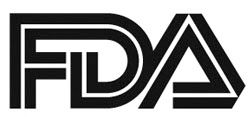Application for Rituximab Biosimilar Candidate Submitted to FDA
A Biologics License Application has been submitted to the FDA for ABP 798, a biosimilar candidate for rituximab, announced Amgen and Allergan, who are collaborating on 4 biosimilar agents together, in a press release.

A Biologics License Application (BLA) has been submitted to the FDA for ABP 798, a biosimilar candidate for rituximab (Rituxan), announced Amgen and Allergan, who are collaborating on 4 biosimilar agents together, in a press release.1
“The United States filing for ABP 798 marks an important milestone for Amgen, as it affirms our commitment to providing high-quality biosimilars that offer more life-altering biological treatment options and contribute to the sustainability of healthcare systems,” David M. Reese, MD, executive vice president of research and development at Amgen, said in a statement. “We look forward to working with the FDA to bring ABP 798 to market.”
Rituximab is a CD20-directed cytolytic antibody that has been approved in a number of indications, including as monotherapy or in combination with chemotherapy for non-Hodgkin’s lymphoma (NHL) and in combination with fludarabine plus cyclophosphamide for chronic lymphocytic leukemia.
The BLA submission included analytical, pharmacokinetic, and clinical data, as well as pharmacology and toxicology data from 2 clinical trials. There were no clinically meaningful differences seen between ABP 789 and rituximab in either trial, including the recent phase III JASMINE trial (NCT02747043). Topline results from this trial were presented in August 2019.2
The objective response rate (ORR) at 28 weeks was between the prespecified margin for the biosimilar and rituximab. The safety and immunogenicity data were similar between the 2 treatments, as well.2
In this double-blind comparative study, investigators enrolled 256 patients with NHL to receive either ABP 798 or rituximab intravenously at 375 mg/m2once weekly for 4 weeks, followed by dosing at weeks 12 and 20. The primary end point was risk difference of ORR at week 28. Secondary end points included risk difference of ORR at week 12, percent of patients with complete CD19 cell count depletion and total IgG and IgM antibody levels, treatment emergent and serious adverse events, incidence of anti-drug antibodies, progressions-free survival, overall survival, and geometric mean ratio of test to reference rituximab.
To be included in this study, patients had to be at least 18 years or older; have a histologically confirmed grade 1, 2, or 3a follicular B-cell NHL expressing CD20 within 12 months before randomization; stage II, III, or IV measurable disease; and have low tumor burden according to Groupe d'Etudes des Lymphomes Folliculaires criteria. Patients with diffuse large cell component and/or grade 3b follicular NHL, a history or presence of central nervous system metastases, or another malignancy beyond NHL within 5 years were not included in the trial.
“We are excited about the progress that we’ve made to date through our partnership with Amgen, which includes the launch of the first 2 oncology therapeutic biosimilars in the United States,” said David Nicholson, PhD, chief research and development officer at Allergan. “With ABP 798, we look forward to the opportunity to continue to provide additional treatment options to patients suffering from serious illnesses.”
References:
- Amgen And Allergan Submit Biologics License Application For ABP 798, Biosimilar Candidate To Rituxan® (rituximab), To U.S. Food And Drug Administration [press release] Thousand Oaks, CA: Amgen and Allergan; December 19, 2019.https://bit.ly/2Scgl7r. Accessed December 20, 2019.
- Amgen And Allergan Announce Positive Top-Line Results From Comparative Clinical Study Of ABP 798, Biosimilar Candidate To Rituxan® (Rituximab) [press release] Thousand Oaks, CA: Amgen and Allergan; August 22, 2019. https://bit.ly/38XVH0T. Accessed December 20, 2019.